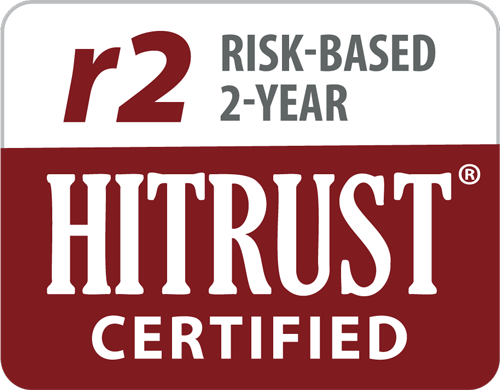BOISE, Idaho – September 14, 2017 – Kno2™, the company that optimizes patient document exchange for everyone in healthcare, gave a major boost to the Office of the National Coordinator for Health Information Technology’s (ONC) efforts to commit health IT (HIT) developers to interoperability when it recently signed the ONC’s Interoperability Pledge.
As a result of this one pledge, the 42 health IT partners that have adopted the Kno2 interoperability platform are now also committed to the effort, doubling the previous total in a single day. All new Kno2 partners going forward will also be included under this umbrella, making it the single largest contributor to the ONC’s goals of ensuring consumer access to health information, eliminating blocking of information between providers, and adherence to industry standards around privacy and security for electronic health information.
Kno2 currently serves electronic health records (EHRs) developers covering the majority of the post-acute care market, a largely under-served segment that often struggles to enable secure electronic patient document exchange. Its interoperability platform is also incorporated into numerous EHRs for the emergency medical services (EMS), acute and ambulatory care providers.
“The challenge the ONC faces is in the numbers,” said Therasa Bell, president and chief technology officer of Kno2. “The goal of the Interoperability Pledge is to break down barriers to enable universal interoperability. While bringing on individual companies is important, this vertical approach is also time-consuming because an individual EHR vendor’s efforts only affect their products. The advantage Kno2 offers is we reach horizontally across dozens of HIT developers with a simple, affordable solution that can be implemented in days. The result is interoperability can be expanded rapidly in a platform that reaches across all care settings. We are excited to act as an accelerant to help the ONC reach its goal faster and to collaborating closely with it to smooth the path for other organizations.”
Kno2’s focus on bringing interoperability to post-acute care organizations – such as skilled nursing facilities (SNFs), assisted living communities, therapists, home health and hospice organizations – is driven by both want and need in the industry. These organizations did not receive the same government-sponsored financial incentives to implement EHRs and thus were largely left behind in the transition to electronic patient documentation. With healthcare now moving toward a value-based model, the industry is recognizing the contributions post-acute care providers make to delivering better health outcomes. The result is a new urgency to exchange patient documentation electronically across all care settings – which Kno2 enables.
For example, patients are often referred to SNFs in different ways including fax, Direct messages, voice and various referral solutions. This results in disruptive and varied referral acceptance and admissions processes that can negatively impact care coordination and patient handoff between the acute and rehabilitation settings. With the Kno2 interoperability platform, SNFs can centralize and streamline the referral process and ongoing care coordination activities, ultimately improving patient safety and clinical outcomes.
“One of the biggest challenges the healthcare industry has faced in driving interoperability is the lack of a single set of standards everyone could follow,” said Alan Swenson, director of interoperability at Kno2. “That is something we are working on very closely with the ONC and the broader post-acute care market. Healthcare organizations throughout the continuum are operating on very thin margins and IT departments are thinly staffed, so any standards that are established must be easy to implement, flexible enough to accommodate the needs of a wide range of providers, and affordable. We have to make the standards easy to adopt and use if we’re going to reach critical mass.”
Kno2 has demonstrated its commitment to interoperability in other ways as well. The company has shared four of its use cases to the HIT.gov Interoperability Proving Ground (IPG). This section of the HIT.gov website is an open community platform where healthcare organizations and vendors can “share, learn and be inspired by interoperability projects occurring in the United States (and around the world).”
As further evidence of its desire to enable broad interoperability throughout the continuum, the ONC recently invited Kno2 executives to meet with several of its officials to discuss the current state of interoperability in the post-acute care industry. Kno2 was asked to weigh in on this important topic due to its dominance in enabling broad interoperability for the post-acute care market.
“Interoperability isn’t just a nice-to-have; it’s critical for achieving many of the nation’s healthcare goals,” Bell added. “Yet traditional interoperability solutions have been beyond the budget and technical capabilities of many organizations, especially in the post-acute care space. Kno2 recognized this early, and dedicated our efforts to creating an easy-to-use, affordable alternative that enables better care coordination across all care settings to ensure the best possible outcomes for more patients. We are proud to reaffirm this commitment, and the commitment of our health IT partners, through our Interoperability Pledge.”



